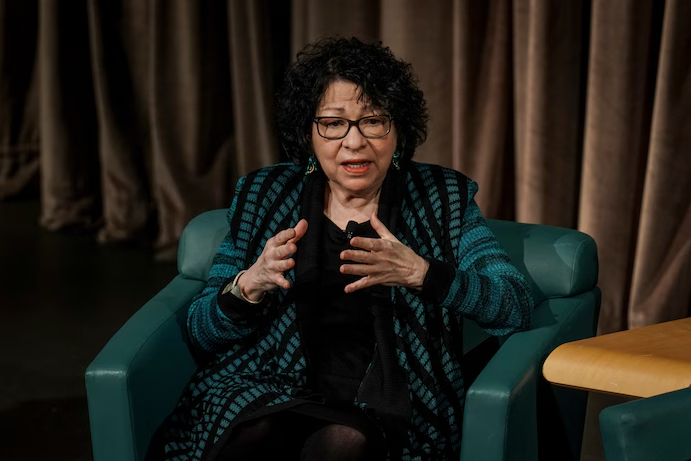What if the president ordered the Navy’s SEAL Team 6 to assassinate a political rival? Or what if he organized a coup to hold on to political power? Sounds like the plot of a movie, right? Most would expect the president to be swiftly arrested and prosecuted for such crimes. However, as a result of the July 1 ruling by the Supreme Court, presidents now have full immunity to prosecution for “official acts” which, according to Supreme Court Justice Sonia Sotomayor, includes the actions listed above.
The ruling comes after a spurt of criminal cases in which former President Donald Trump faces prosecution for multiple alleged offenses including falsifying business records, mishandling classified documents, and conspiring to overturn the 2020 election. Trump appealed to the Supreme Court, arguing that “a President has absolute immunity from criminal prosecution for actions performed within the outer perimeter of his official responsibilities, and that the indictment’s allegations fell within the core of his official duties.”
As a result, Trump v. United States began, with Supreme Court Justices Sonia Sotomayor, Ketanji Brown Jackson, and Elena Kagan dissenting on presidential immunity. Sotomayor, who led the dissent, argued that the “extraordinary rule has no basis in law” and would exponentially expand the scope of presidential powers. Furthermore, she detailed how the vague parameters of “official acts” could be destructive, warning that the president would technically be immune even if he were to take a bribe in exchange for a pardon.
Despite the dissenters’ arguments, Trump’s appeal prevailed with the Supreme Court ruling 6-3 that former President Donald Trump could be tried for attempts he made as a candidate – but not as president – to overturn the 2020 election. Following the Supreme Court’s decision, one of former President Trump’s attorneys, David Gelman, said, “If a president is handcuffed, they are not going to be able to do their jobs in an effective way.” However, his statement fails to acknowledge that if a president is handcuffed in the first place, there is likely a more significant issue at hand than whether or not they are able to effectively perform their duties.
Whether it be now or decades in the future, the Supreme Court’s ruling could have catastrophic implications that risk spiraling the country into anarchy. The immunity that future presidents now wield threatens to dismantle the fundamental system of checks and balances that has been in place since the birth of America. As Justice Sotomayor said, “The President is now king above the law.”


